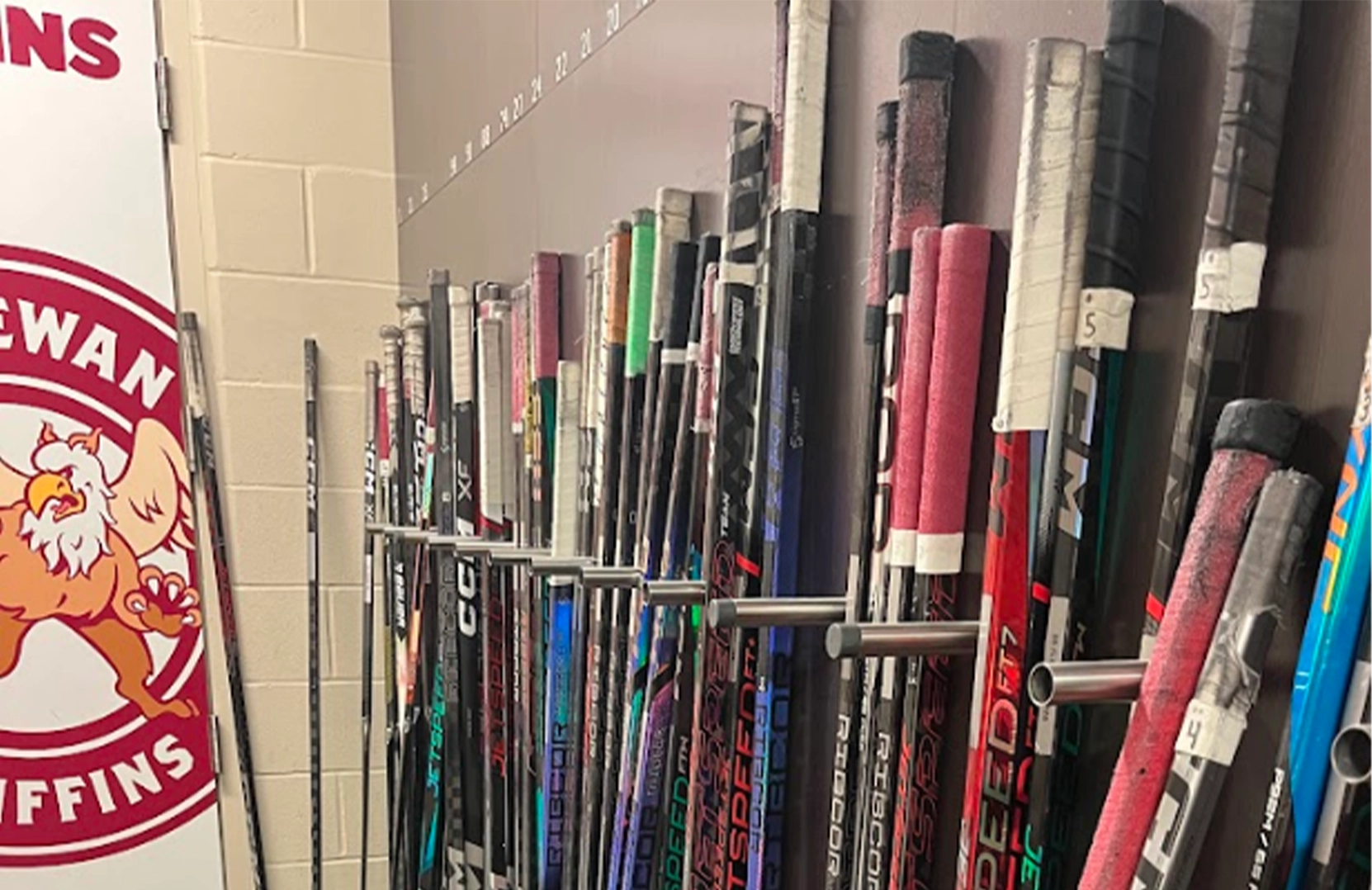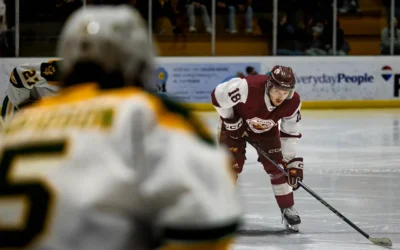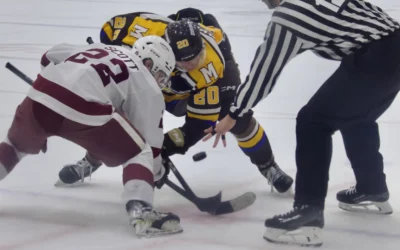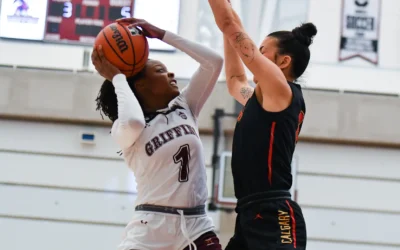“Is he hurt or is he soft?”
Concussions and anxiety. Broken bones and depression. Conflicting afflictions happen all the time in hockey, but only one is spoken about. And while it’s normal to have updates on your favourite player’s most recent injury — torn ACLs, broken ribs, and concussion protocol — what about mental injuries?
“In hockey, we’re very tough guys,” says J’Ramsankar, student physical therapist for the Men’s Griffins Hockey team. “You don’t want to be seen as soft. And I mean, that’s also the language that we use: ‘Oh, is he hurt or is he soft.'”
Despite the tough-guy nature of hockey, there’s been a shift in mental health advocacy.
In the last few years, NHL players like Robin Lehner and Slater Koekkoek have announced their steps back from the high-stress sport due to mental health reasons and some players, like Colorado Avalanche superstar Nathan MacKinnon, employ sports psychologists.
But now, MacEwan Athletics is bringing its own advocacy, primarily by employing staff who understand the importance of the mental game of hockey.
“Having a clear mind is very important for focus, and you need a lot of focus to execute and perform as an athlete,” says the men’s Griffins head hockey coach Zack Dailey. “Also, you just want to feel your best.”
MacEwan has hired CEP Mindset to provide a mental performance coach for the teams. The hockey performance coach will stop by four times a year to do team sessions and give players strategies for improving their mental toughness, resiliency, and problem-solving.
Sometimes, it encourages players to create self-help strategies, such as reset routines or journaling techniques. Recently, the team have been encouraged to read Mindset First by Dr. Cassidy Preston, but Ramsankar says, “I don’t think our team’s a big fan.”
While physical pain is manly, and emotional pain is not, the two are often related.
Physical therapists may be some of the first people to notice a player’s mental health struggle. “I get to see players at their highest highs and their lowest lows,” says Ramsankar. “An injury can be devastating.”
For some players, they may have reoccurring mental health disorders. For others, the ramifications of injuries can extend past their physical healing. Ramsankar noticed that there can be anxiety about severely injuring themselves again after relatively minor hits.
“But you also see them when they know something is wrong. And it can be one second, and suddenly, the season’s over.”
In the fall, Ramsankar was enrolled in the kinesiology program at the University of Alberta. While it is a requirement for her to have first aid and CPR training, she hopes mental health first aid will become a priority.
“When you get a concussion, one of the symptoms can be anxiety and depression. And all of these […] really heightened emotions can be a sign,” says Ramsankar. She also explains that sometimes it’s not even a concussion.”
“Maybe it’s just anxiety, but [not] knowing how to handle that, you can feel very underprepared when you’re in my role.”
From the bench to the coach’s room, both players and staff can feel under-prepared for handling the mental game. Anxiety about school, relationships, and re-injury can affect how well the players play or if they can bounce back from losing.
“In the past, I recognize that that was kind of an issue. Where if we were down in hockey games, there was not really that push back,” reflects Dailey. “I recognize that was something that we needed help with.”
While the performance checks are still new, Dailey says he’s noticed an improvement in the player’s drives when they’re out on the ice. But it’s too early to know if it’s the mental health support or simply a reflection of the players.
“I hope that my players feel comfortable enough to come talk to me about any issues that they’re struggling with,” says Dailey. “It’s open-door policy with the coaches. And if there’s anything that the players need, we’re here to help them. […] Not everyone feels comfortable talking to their coach about it, but they do know that there’s services available for them.”
Photo by Rebekah Brunham





0 Comments